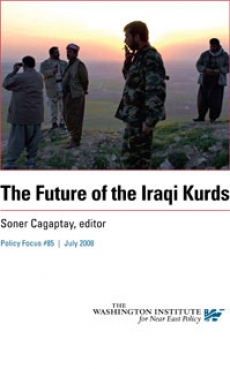| The Kurdish Regional Government in Iraq: An Inside Story
A trip to the KRG—composed of the Irbil, Dahuk, and Sulaymaniya provinces in northern Iraq, with a mostly Kurdish population of approximately 4 million—is a study in political relativism. Compared to the rest of Iraq, or indeed, to some other countries in the area, this autonomous region is more stable, more prosperous, and more secure. At the same time, the KRG is not free of factionalism, repression, corruption, or economic deficiencies; like the rest of Iraq, it is still a work in progress. As the KRG’s prime minister, Nechirvan Barzani, put it in a recent interview, “Our political system, our judicial system, our physical infrastructure and our educational system are in great need of modernization, but we will persevere with the help of our friends and by the fruits of our labor.”
U.S. vice president Dick Cheney accentuated the positive side of this picture on a visit to the regional capital of Irbil in March 2008, the highest-level such U.S. visit ever, praising
"the special friendship between the United States and the people of Iraqi Kurdistan. The results have been quite remarkable for all to see, in terms of the development and prosperity of this part of Iraq. The transformation that has occurred in less than two decades [since the 1991 establishment of the U.S. protective “no-fly zone” over northern Iraq] sets an extraordinary example, I believe, for the rest of Iraq and for what is possible, with patience and resolve, when the United States and the people of Iraq join together in a common effort and strategic partnership"...
David Pollock | 